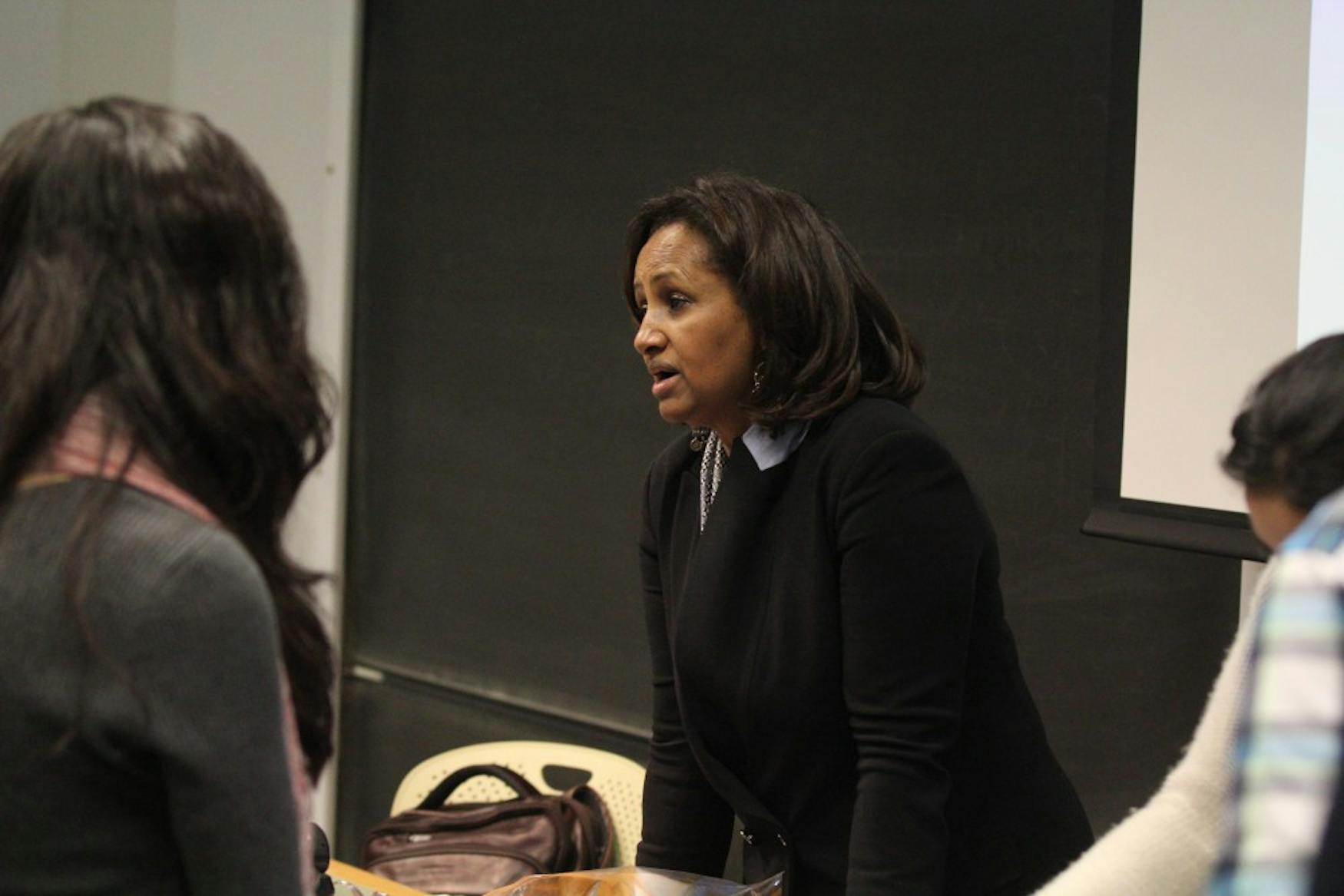Lecturer addresses women’s rights in the Middle East
Last Wednesday, the Heller School for Social Policy and Management’s Graduate program in Coexistence and Conflict welcomed global political strategist and women’s rights activist Hibaaq Osman. The lecture was held to celebrate International Women’s Day, which was on Sunday Mar. 8. Osman gave a guest lecture about her experiences as the CEO of Karama, a non-governmental organization that protects women’s rights in the Arab world. Osman, who founded Karama in 2005, spoke about her organization’s partnerships with local women’s rights organizations across the Middle East, including in Libya, Syria and Yemen. Osman highlighted Karama’s policy of working with groups already active within each country, stating that she “[has] the wisdom to know that I don’t know everything. … We are going to respect whatever their priority is.” Prof. Alain Lempereur (Heller), who is the Alan B. Slifka professor and program director of the Coexistence and Conflict Graduate program, introduced Osman, calling her “among the most influential Muslim women in the world … and the most important in my heart, in my mind.” In an email to the Justice, Lempereur wrote that he worked alongside Osman at a meeting of the Libyan Women Platform for Peace and has worked for Karama as “a moderator in a consultant capacity” in Libya and Jordan.
Osman began by discussing Karama’s newest initiative, Justice for Salwa is Justice for All, named in honor of human rights lawyer Salwa Bugaighis, who was assassinated in Libya in June 2014. According to Karama’s website, the campaign seeks “to put pressure on regional governments to hold perpetrators of violence against women in the Arab region to account.” Osman said that Bugaighis was a close friend of hers and is sorely missed.
Osman’s lecture, “Women, Peace and Security in the Arab Region,” explored Karama and its goals. Osman characterized Karama—whose name is derived from “Al-karama,” the Arabic word for “dignity”—as “a movement” aiming to end violence against women in the region by “reconciling the global with the local,” she said. Osman emphasized Karama’s style of working “from the ground up” by coordinating with local advocates .
Osman said that she’s learned that sometimes the best way to advocate for women’s rights in areas experiencing violent conflict is to advocate for peace in the region, as local advocates have emphasized the importance of peace to her, and “women really have a special appreciation for peace.”
She added that it is an important time for women’s rights advocates in the Middle East due to the aftermath of the Arab Spring, because “women were at the forefront of protests in the squares, standing shoulder-to-shoulder with men … [but] following the uprisings, women saw unexpected [violent] backlash.” She criticized governments that do not invest in women’s education, saying that “women are [often] left behind.” She noted that achieving change within governments requires reaching out to conservatives and finding ways to increase understanding of the importance of women’s rights. During a question-and-answer segment after the lecture, Osman was asked about the connection between women’s rights violations and Islamic fundamentalism and answered that she believes Sharia law is a misinterpretation of Islam. “It’s political; never ever think it’s anything else,” she said. She said she regretted that religion has become “politicized” in the Middle East and called on the Muslim community to “reclaim Islam.” The event was held in the Heller-Brown Building and was co-sponsored by the International Center for Ethics, Justice and Public Life; the Graduate Program in Sustainable International Development; the Heller School’s Gender Working Group; the Hadassah-Brandeis Institute Project on Gender, Culture, Religion and Law and the Women’s Studies Research Center.



Please note All comments are eligible for publication in The Justice.